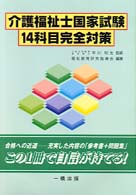- ホーム
- > 洋書
- > ドイツ書
- > Social Sciences, Jurisprudence & Economy
- > Politics, Society, Work
- > general surveys & lexicons
Full Description
This is the first detailed "grass roots" account of Uzbekistan's protracted decollectivisation process. It explores continuity and the change in relations between rural communities, agricultural producers, and the local state authorities in the cotton-growing region of Khorezm. Built up during the Soviet period, the cotton sector has maintained its importance for the state and for rural communities in the years following independence, although economic parameters and social conditions have worsened significantly. Uzbekistan's agricultural reform path does not follow that of most post-socialist scenarios and continuity with the past remains strong. Despite seeming immobility, the local view on rural society presented in this book unveils an unexpectedly dynamic situation, characterized by shifts in patronage relations, struggles over legitimacy, and transformations in family structure and community life. Poised between the state, their communities, and an emerging stratum of absentee farm "sponsors," the focus is on the new farmers ("fermer") and their struggles for a place in rural society. What emerges from decollectivisation is a complexly articulated new agrarian concern: its new inequalities are rooted in the political economy of cotton. (Series: Halle Studies in the Anthropology of Eurasia - Vol. 23)







